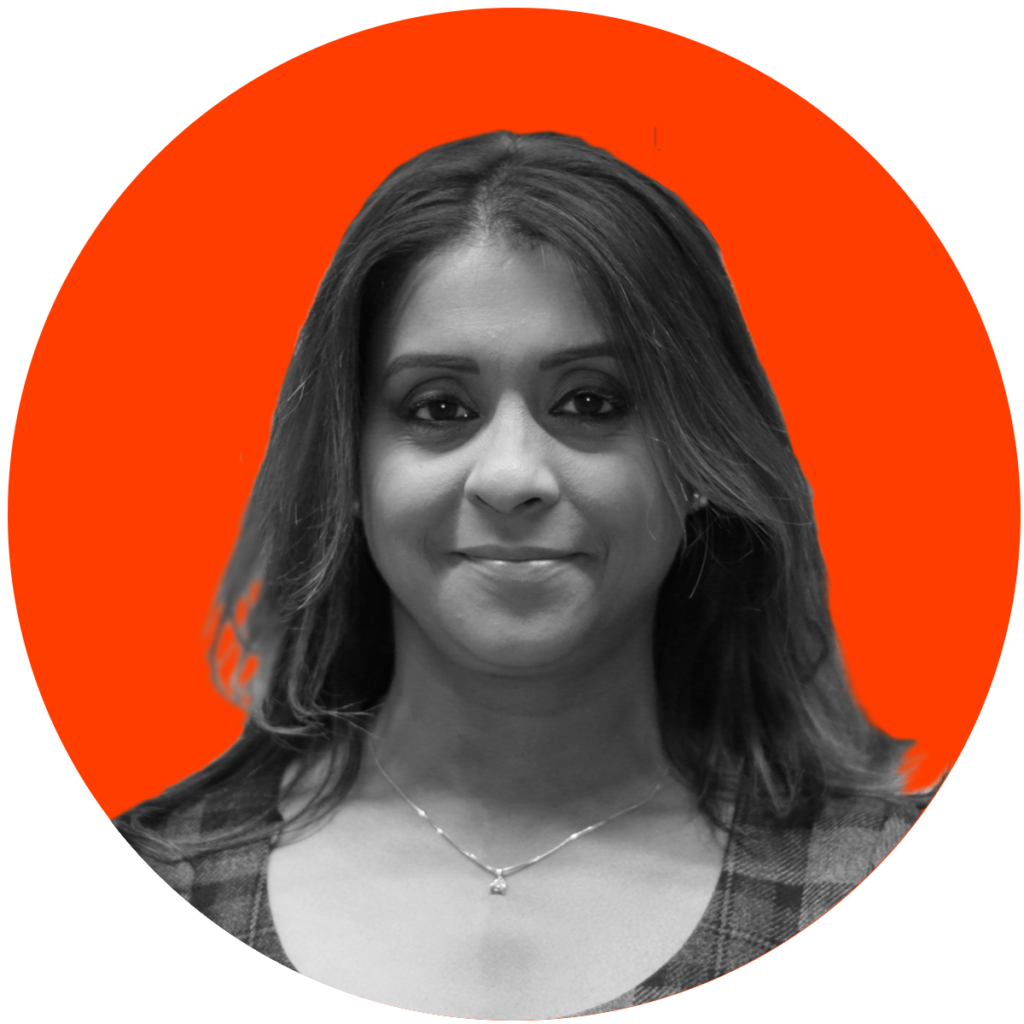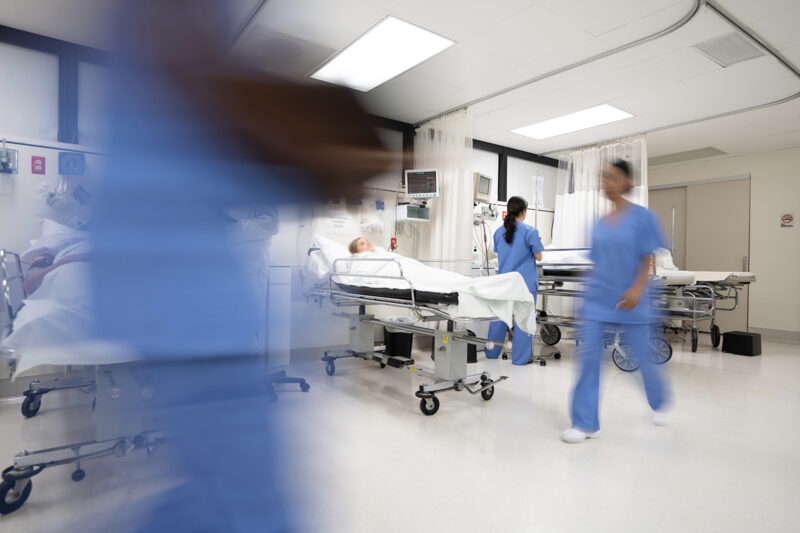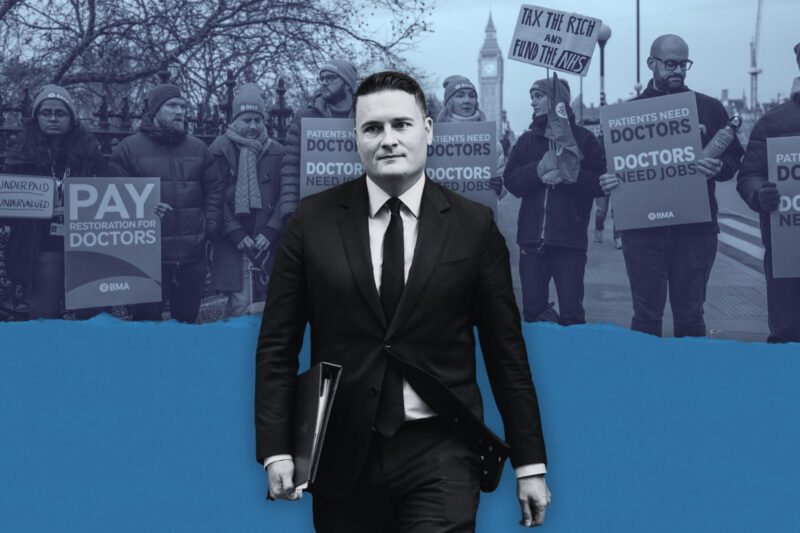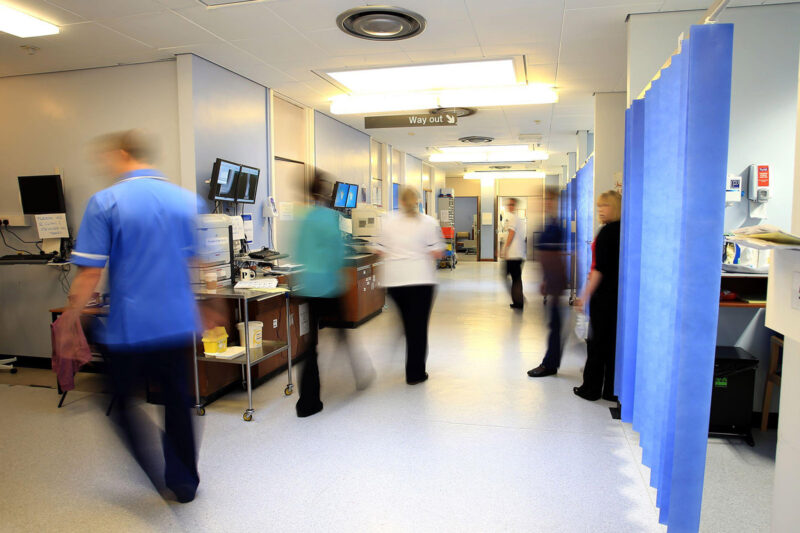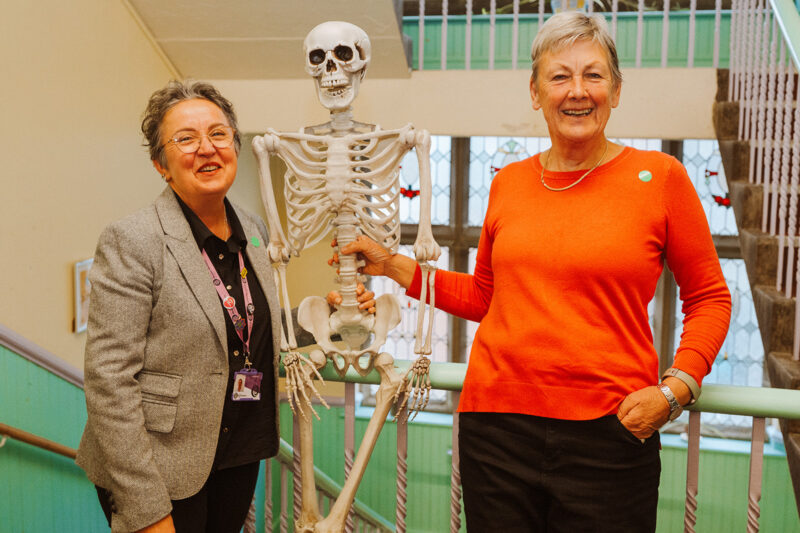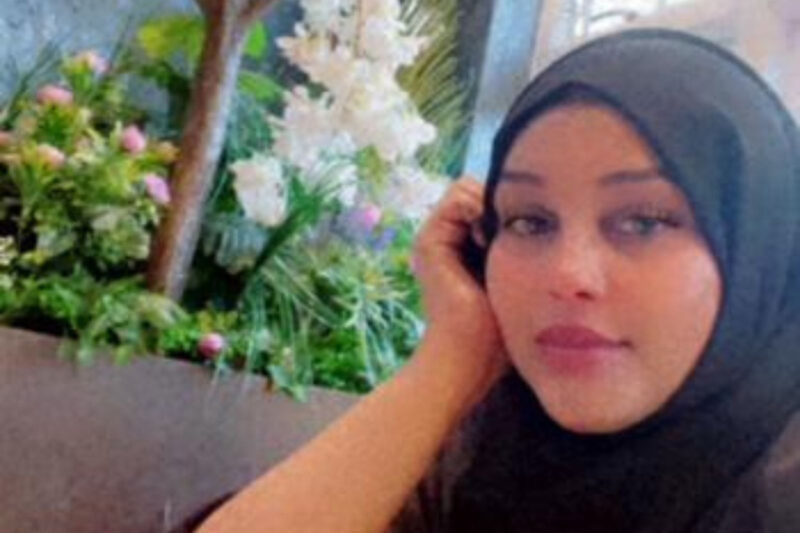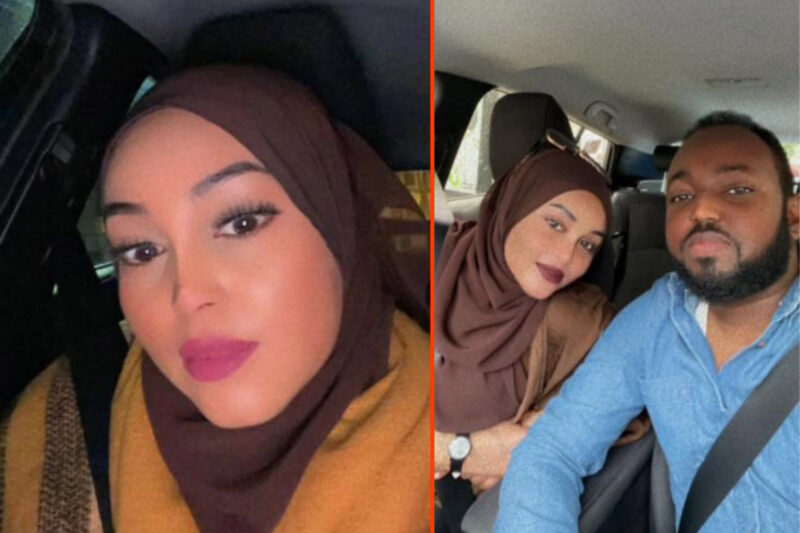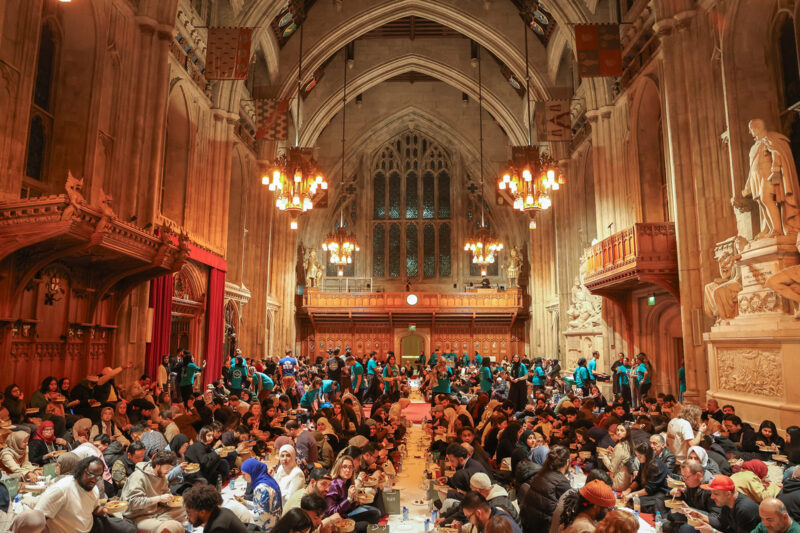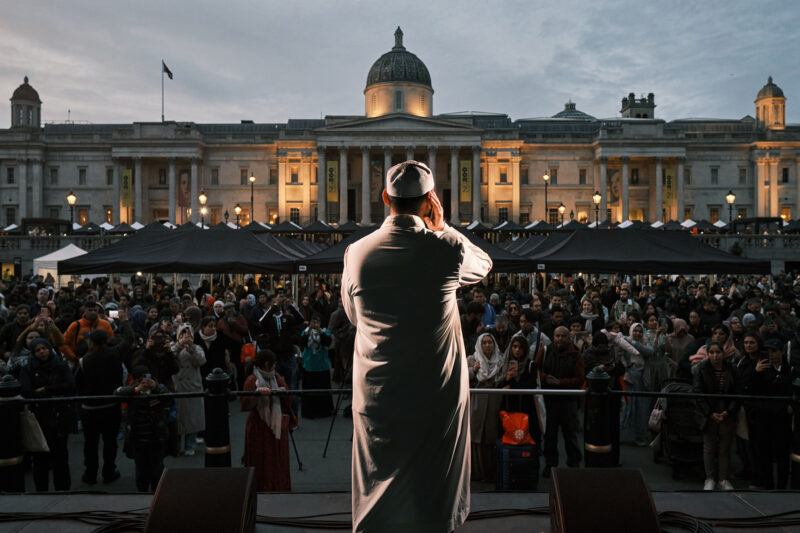Attitudes to organ donation are changing among British Muslims
Once widely viewed as forbidden, this life-saving medical procedure is becoming more accepted
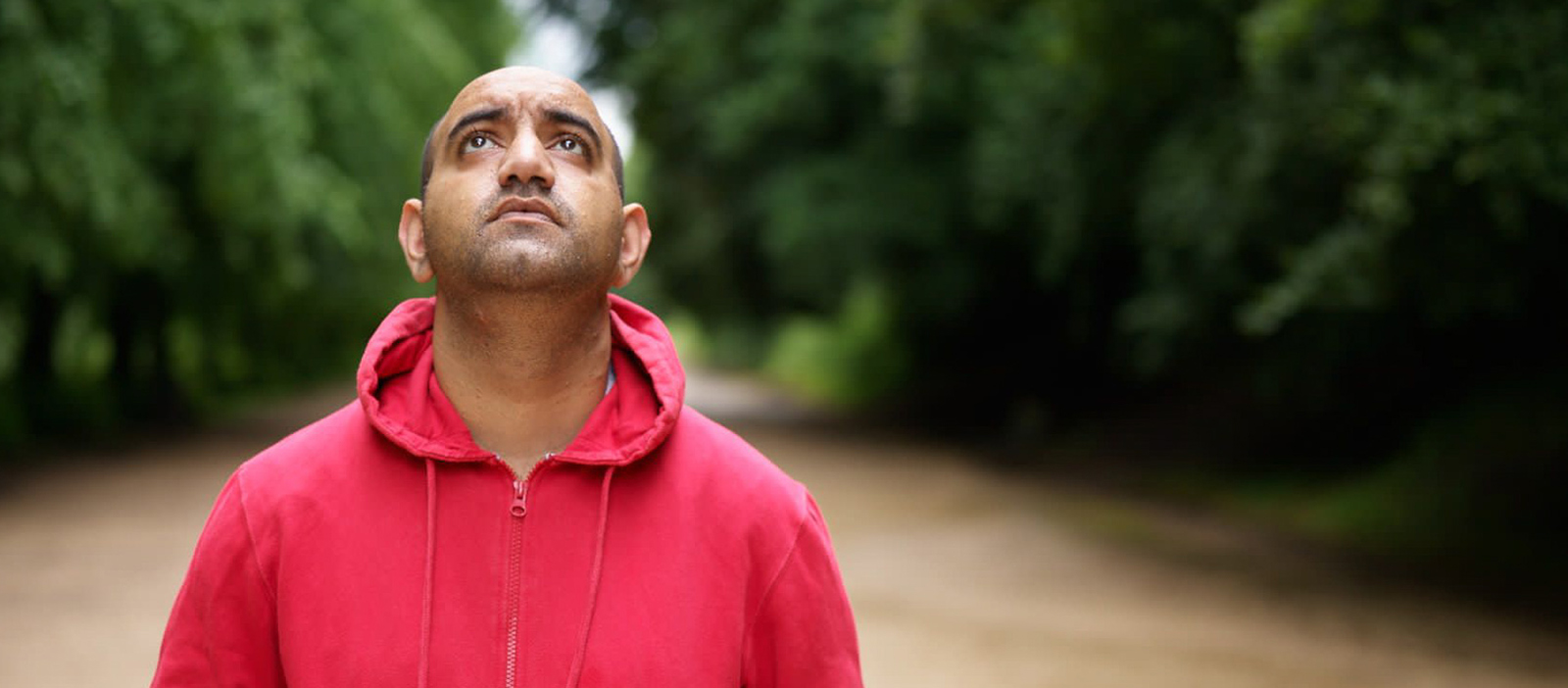
Azeem Ahmad’s journey into organ donation began in 2004, at his university freshers’ fair. Seeing a stem cell donation stand, he gave a quick blood sample and forgot all about it. Six years later, he received a letter saying he could be a possible match for someone.
“As soon as I got the letter, there was no question in my mind,” he said, “I was going to explore it.”
A few months and several medical tests later, he found himself hooked up to a machine, ready to help change the life of a complete stranger. The process was simple and painless enough that it spurred him on to investigate what else he could do. Encouraged by his father, he started giving blood.
“My dad’s always been a blood donor, Ahmad explained. “He loves it. He’s at about 90 blood plasma donations now.”
He added: “I think it comes from the way we were brought up religiously, which was just to be good people. If you see somebody in need, you help them. That’s my fundamental understanding of Islam.”
The 36-year-old inclusion and wellbeing consultant from Newcastle joined a number of online forums dedicated to organ donation. Then, in 2019, he made a big decision. He spotted a tweet by the former footballer Neville Southall supporting a campaign called “Hope for Anaya,” which was raising awareness of a seven-year-old South Asian girl in need of a kidney. Azeem knew he had to help.
“Something inside me just clicked,” Ahmad said. “A big part of me was, ‘That could be my nephew.’’’
Ahmad turned out not to be a match for Anaya, but he decided to donate his kidney to someone else anyway. After undergoing a series of rigorous medical and psychological tests, he was all set.
“I was apprehensive,” he said. “It was a big leap into the unknown, but I became more confident when I reached out to other donors. There are a couple of private Facebook groups. We’re all in there and you see everything: the joy, the pain, the struggles.”
Ahmad’s story may sound exceptional, but he is just one of a growing number of Muslims across the UK who want to donate their organs while alive and when they die. Many of them have been inspired to act by the fact that a disproportionate number of ethnic minority patients are on donor waiting lists.
According to NHS Blood and Transplant (NHSBT), someone dies every day because of the shortage of suitable donors. Most patients are waiting for kidney transplants, but there are also long waiting lists for hearts, lungs and livers. Of those waiting for a kidney, even though ethnic minorities make up around 12 per cent of the UK population, one in three is non-white.
That over-representation is largely a result of higher rates of diabetes and hypertension, which can lead to kidney failure. For kidney transplants, the best blood and tissue match will usually come from someone from the same ethnic background. However, the after-death donation rate among minority groups stands at just 7%. That means patients from minority backgrounds are likely to wait much longer for suitable matches.
Religious and cultural factors continue to play a significant role in low organ donation rates within the Muslim community
While the number of living donors, like Ahmad, within Muslim communities in the UK has increased, a significant reticence remains when it comes to after-death donation. In most cases, this stems from a belief that organ donation is forbidden by Islam, even though the Qur’an makes no specific mention of the subject. To counter these assumptions, a number of religious scholars have issued fatwas stating that organ donation is perfectly permissible.
One of them is Mufti Mohammed Zubair Butt, a shariah expert who is part of the UK-based Al-Qalam organisation, which specialises in advising imams, British Muslims, grassroots organisations and corporate entities about everyday aspects of Islamic law. In 2019, Butt drew upon four established schools of Islamic jurisprudence to come up with an edict which covered all forms of donations, including blood, stem cells, living and after-death donation. It acknowledged that organ donation saves lives and concluded that donation after death is permissible, as long as all requirements have been satisfied to confirm that the soul has left the body.
Crucially, the fatwa is not binding. Families and patients can always have the final say, without fear of having acted outside any religious obligations.
The fatwa, which was supported by NHSBT, seems to have played a part in encouraging Muslims to become donors. In a survey carried out by NHSBT just before the fatwa was issued, just 31% of Muslims said they supported after-death organ donation, while 37% opposed it. In a separate online survey in November 2021, 46% of Muslims said they supported organ donation, while just 21% said they opposed it.
Despite this positive shift in attitudes, religious and cultural factors continue to play a significant role in low organ donation rates within the Muslim community. Nazia Khan is a radiographer from Blackburn. For the past four years, she has been working to raise awareness about the importance of donation within her community. With resources from the NHSBT community investment scheme, which funds around 50 projects across England among different ethnic and faith groups, she uses video presentations and a number of other outreach methods to spread the word.
Khan believes it is important that the communities themselves lead conversations around the subject. But the resistance she often faces, particularly from the older generation, can leave her frustrated.
“I get a lot of stick for doing what I do,” she explained. “People say it’s haram. They’re like, ‘No, it’s against our religion. We don’t want to know.’”
Khan’s motivation stems partly from the fact that her six-year-old son, Adam was born with one kidney. At the time, she was terrified.
“I went for my 20-week scan and they told me one of his kidneys was not functioning. It had cysts all over it,” she said. “Even though I know you can survive with one kidney, I burst into tears.”
Fortunately, Adam is perfectly healthy, but the experience brought home to Khan the importance of organ donation. She now works with the local charity, One Voice Blackburn, local imams and organ recipients to spread the message. She has just completed her second educational video, using schoolchildren as presenters.
“I think it has a greater impact if you’ve got young kids doing it,’ she said, “I think they’ll understand. I want them to deliver these presentations to the adults. I want to blast it everywhere.”
Another problem Khan has encountered is when families override a deceased person’s wish to donate. “We can’t do anything about it if they intervene,” she explained. “We have to respect the family’s decision.”
Apart from a few exempt categories, all adults in England and Wales, Scotland, and Jersey, are considered to have agreed to donate their organs when they die, unless they register to opt out. Khan hopes that if individuals actually register to opt in, which they can still do, families will be clearer on their wishes and therefore not go against them.
Ahmad, for example, has done just that. “I’ve registered for all my organs to be donated if possible,” he said. “Whatever happens to my soul, I don’t need the physical bits.”
Key to Khan’s work is telling the stories of people with experience of the donation and transplant process. This is where organ recipients come in. Faizan Awan is one of them. Fez, as he is known to his friends, is also from Blackburn. He was born with a condition known as reflux nephropathy, where his urine passed back up from his bladder into his kidneys, damaging them.
Fez received his first donated kidney aged three. But, soon after he started secondary school, it failed. After several years of dialysis, he received a kidney from his father. Some years later, that one also failed and Fez found himself back on dialysis. His most recent transplant came from an anonymous donor in 2020.
Even though all the years of dialysis and surgery have affected his quality of life, Fez, who is now 36, is under no illusion about what it could have been like without donors. “I’d still be living on dialysis or I would probably have given up completely and be dead,” he said.
The other message Khan wants to get across to living donors is that the risks of surgery are not as great as many people fear. Ahmad agrees. He admits he was in pain for the first few days, but after that, the recovery was fast.
“On the second morning after surgery I could start moving about more freely. From there on, it was solid progress,” he said. He even started running just eight weeks after his operation. “I did my first park run with one kidney 10 weeks after the donation. Since then, I’ve done the Great North Run.”
Others believe that engaging with communities is just one dimension of a system-wide issue. Gurch Randhawa is a professor of diversity in public health at the University of Bedfordshire. He explained: “Community engagement is really important. But as a system, we need policies that make the need for organ and tissue-type allocation a priority.”
As co-author of the first ever UK government-commissioned Faith & Organ Donation Action Plan, Randhawa’s work has led to a range of community-led initiatives serving Black, Asian, mixed heritage and minority ethnic communities with help and involvement from religious leaders, community groups, donors and recipients.
He points to the fact that public health grants allocated by the government have been cut by 24% in real terms across the UK and that, proportionally, the biggest cuts have been in the most deprived areas, which tend to be home to the greatest concentrations of ethnic minority groups.
People from South Asian backgrounds are also more susceptible to conditions such as diabetes and hypertension, which can increase the need for organ transplants. Randhawa is calling for a greater emphasis on preventing these diseases in the first place by providing better information on diet and exercise, as well as access to the right kind of medical support.
“We need a workforce that is actually diverse and reflective of our communities,” he said, “They need to be trained to know how to approach families from different ethnic and faith backgrounds.”
The starting point, all those invested in the issue agree, is honest and open conversation within communities about the importance of organ donation. For Khan, the choice is simple: “If you’re happy to take an organ, you should be happy to give one.”
 Newsletter
Newsletter

